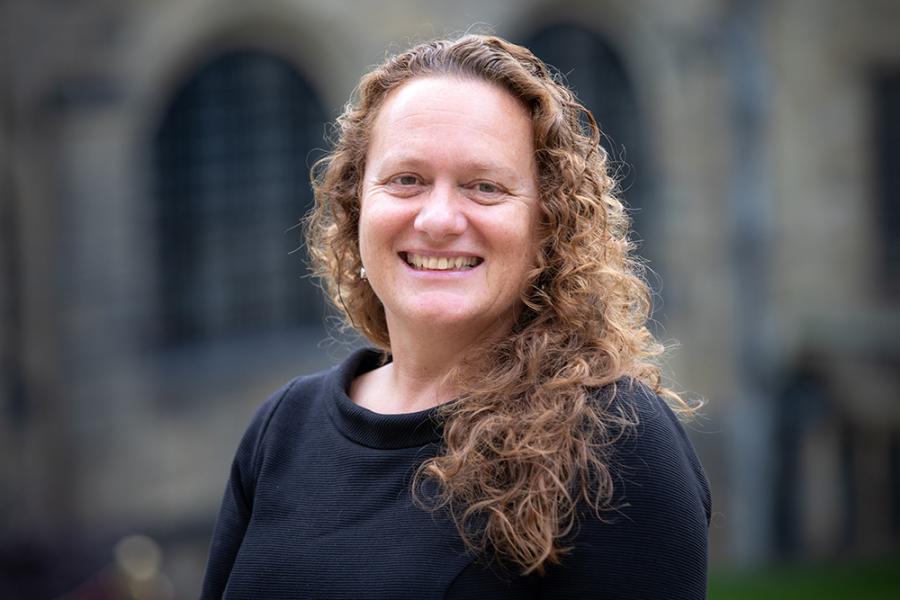"As the NHS marks its 75th anniversary, its original values remain as relevant today as they did in 1948.

The NHS was the first universal health system to be available to all, free at the point of delivery, and in an ever-changing world it continues to adapt to the shifting healthcare needs of our communities.
Bangor University’s association with the healthcare sector predates the NHS and is characterised by an interrelated commitment to health and medical education, research, and innovation. In 1926 Edwin Owen, the son of a local quarryman, was appointed to the University’s Chair of Physics, where he established a research school which was internationally recognised for the precision of its X-ray work.
Since the days of Edwin Owen, the University has successfully trained thousands of graduates for careers in the NHS and health systems globally. These include nurses, physiotherapists, radiographers, midwives, emergency practitioners, physicians’ associates, biomedical scientists, psychologists, and sport scientists, all of whom seek to deliver the best possible care for patients and for the health of our communities.
Today, we work closely with the Welsh Government’s Health Education and Improvement Wales (HEIW) and Betsi Cadwaladr University Health Board (BCUHB) to develop and deliver new high-quality education designed to ensure sustainability within the NHS workforce. For example, a new programme for dental hygienists is part of our contribution to improving dental provision across Wales, and our distance and blended learning nursing degrees offer students flexible options for learning using digital capability. We also deliver courses designed to alleviate the burden on pressurised services. For example, our post-registration prescribing and pharmacy prescribing modules have transformed local services, allowing patients to access consultations in pharmacies for minor ailments, thus reducing the pressure on GP surgeries. Our AlphaAcademy delivers a series of microcredit modules (bite sizes of learning) offering a flexible way for health and social care professionals to upskill at their own pace, whilst also gaining recognised postgraduate credits.
For as long as the NHS has existed, there has been an aspiration to create a Medical School in North Wales. Work toward this aspiration has accelerated recently. In partnership with Cardiff University, BCUHB and Welsh Government, for the past four years medical students have been able to study entirely in North Wales, and in June of this year the first cohort of 17 C21 North Wales students will graduate with a Cardiff University medical degree. More than half of this first cohort of 17 students will be taking Foundation positions in the Welsh NHS.
Building on this partnership working and these successes, subject to General Medical Council approval later this month, we will welcome the first cohort of 80 students to the North Wales Medical School in September 2024. Growing over time, we will have a potential enrolment of 140 new medical students a year by 2029.
Our association with the NHS goes beyond educating the next generation of healthcare professionals. We have championed the preventative health agenda and the crucial role this plays in achieving a healthy Wales. Our contributions include programmes such as Food Dudes, devised to encourage healthier eating habits amongst school-aged children, investigating whether Artificial Intelligence can support discharged cancer patients, and delivering exercise prehabilitation and rehabilitation interventions as part of clinical pathways. We are constantly looking for innovative ways of providing patient centred support which can be delivered in a cost-effective manner across Wales and beyond.
To mark its 75th anniversary we asked our alumni working for the NHS how they would describe the institution. Invaluable, caring, and essential featured most commonly in their responses. They were unanimous when asked what motivated them to work for the NHS, they wanted to help people when they needed it most. Their job satisfaction comes from knowing that they have made a made a positive difference to the lives of others.
The motivation to improve the lives of others was shared by the quarrymen and farmers who originally funded Bangor University almost 140 years ago. At Bangor University we are fully committed to maintaining this legacy, making a difference, and will continue to work with, and support, the NHS, via education, research, and innovation for the benefit of our population."
